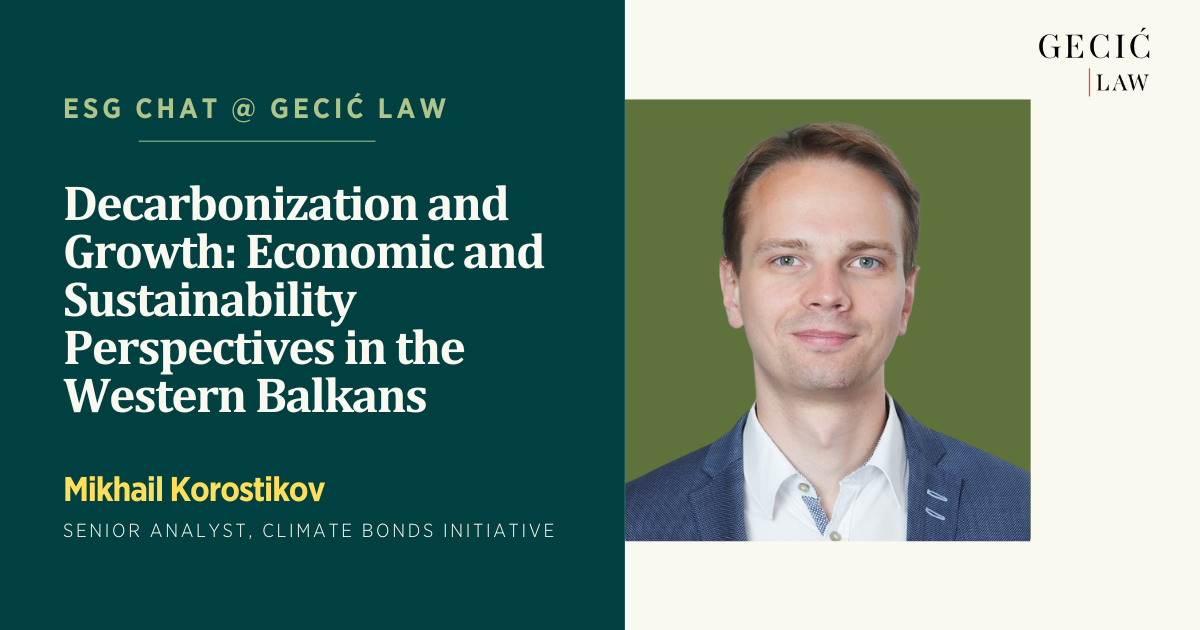

Gecić Law is pleased to announce the second edition of “ESG Chat @ Gecić Law,” an insightful series of interviews exploring the dynamic and ever-evolving world of Environmental, Social, and Governance (ESG) practices.
In this edition, we bring you a thought-provoking discussion with Mikhail Korostikov, Senior Analyst at the Climate Bonds Initiative and a leading expert in green economics based in Serbia. The interview delves into the intricate relationship between the issue of sustainability, decarbonization and economic growth. We take a look at these phenomena from the perspective of the Western Balkans. Central to the discussion is the notion that decarbonization holds many challenges. However, it may also foster economic growth through various avenues.
Furthermore, the discussion points out how renewable energy, such as solar, wind, and hydropower, is increasingly becoming more cost-effective. This is especially true against a backdrop of volatile hydrocarbon prices. We also touched on global investment trends, noting a shift towards financing low-carbon projects. Described as the rise of the “greenium,” this move allows access to cheaper financing for green initiatives. Consequently, this is an area of alignment between economic incentives and environmental goals.
In addition, the interview also brings into focus an international perspective, especially in light of the outcomes of the recently held COP28. The region’s countries must adapt their policies to align with global climate action. We spoke of the importance of green standards and taxonomies aligning local and regional with global green initiatives. Mikhail sees developing national or regional green taxonomies in anticipation of EU standards as a desirable step. This approach could facilitate a smoother transition to greener practices, attract international investments, and have a role in mitigating the potential economic impacts of new regulations like the EU’s Carbon Border Adjustment Mechanism (CBAM).
In our region, environmental imperatives and economic opportunities may intersect. Tapping into opportunities for economic growth and sustainable development can go hand in hand.
To read the full interview, please follow this link.